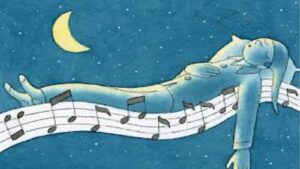Turns out that rats not only liked to be tickled, but they also love dancing to songs by Lady Gaga, Mozart, and several others. As they bop their heads to the beat, they experience positive changes neurologically, mentally, and physically. A meta-analysis of 42 studies revealed that rodents who were exposed to music experienced improvements in brain structure and neuro-chemistry, a reduction in anxiety-related behavior, and improved immunology physiology.

Just like rats, for humans, music is medicine! Music therapy has been shown to help everyone from pre-mature infants to Alzheimer’s patients. For people of all ages, music positively impacts learning, behavior, neurodevelopment, physical health, and mood.
As the days get shorter and winter settles in, it is important that we find ways to boost our mood and physical health (especially immunity). So try replacing some of that morning and afternoon sunshine that we miss with music. In the mornings before school or work, and when getting home, play those songs that make you dance and smile, and that you just can’t help but bop along with.

But it’s not just the fast or exciting beats that boost our mood; soothing music is medicine, too. Try playing some quiet relaxing music at the end of the day or during bedtime to help melt away anxiety and stress from the day. Relaxing music improves sleep by calming parts of the autonomic nervous system, leading to slower breathing, lower heart rate, and reduced blood pressure. It also has been shown to reduce cortisol (a stress hormone), which makes it easier to fall asleep.
I invite you to try this. Set an intention to get your daily (and nightly) dose of music and see what happens!
All the best,
Dr. Katen
©2023 Individual Matters, LLC. All rights reserved. Feel free to republish so long as credit is given.
Individual Matters® is a registered trademark of Individual Matters, LLC.

 Ask Dr. Katen (A Psychologist Answers Your Questions)
Ask Dr. Katen (A Psychologist Answers Your Questions)